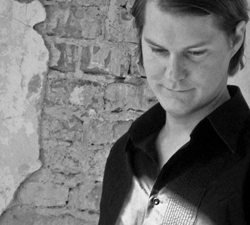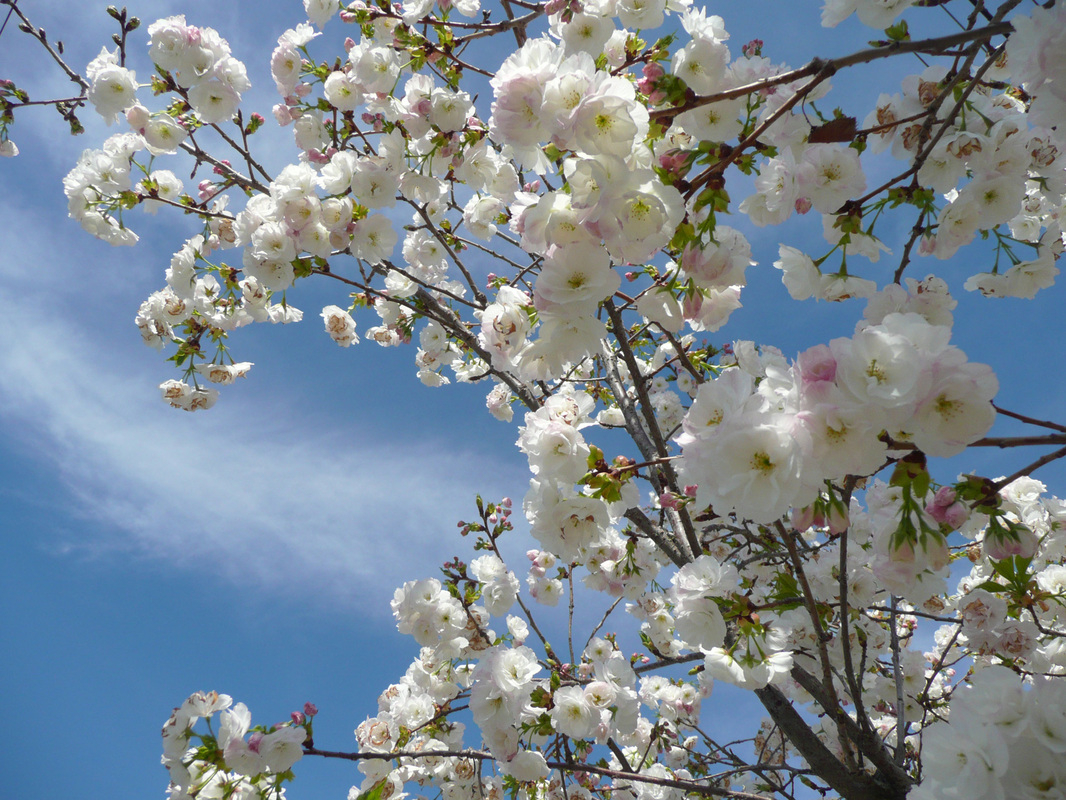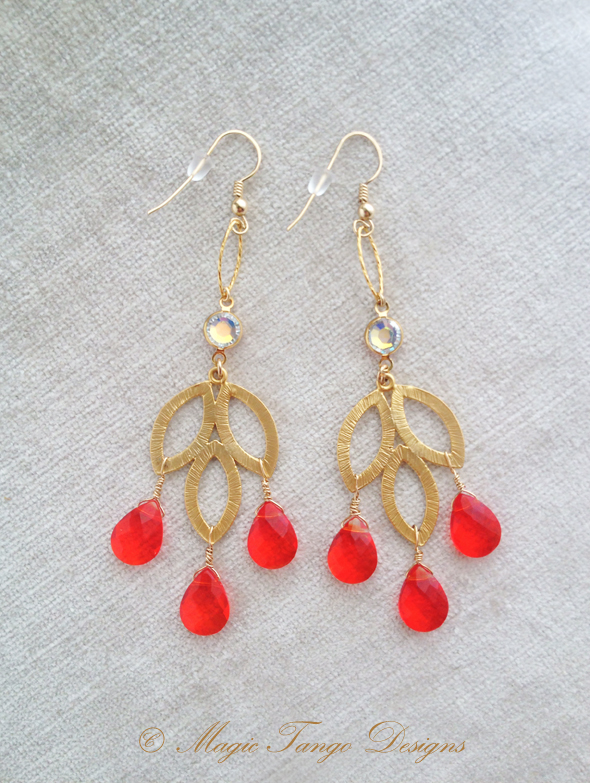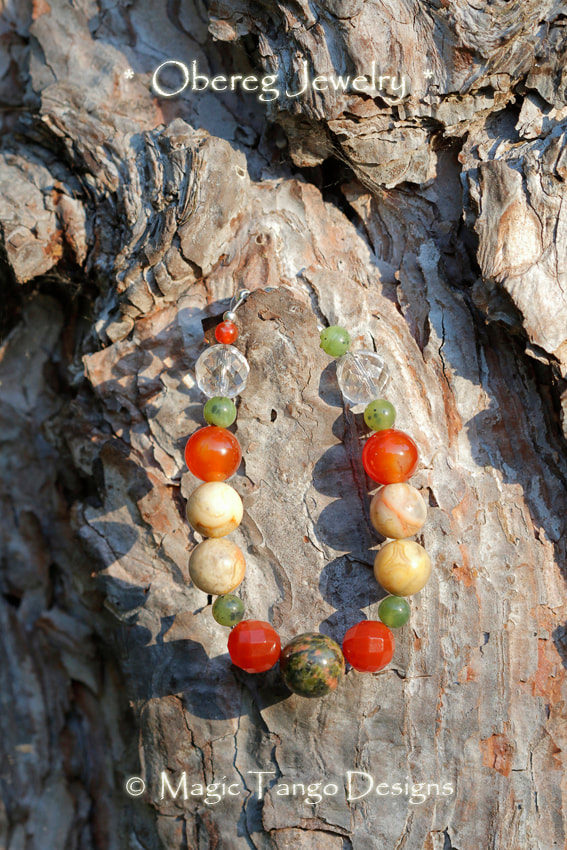THOMAS RIESER - Nou Tango Berlin (Germany)
Q1: Hi Thomas, thank you for agreeing to give this interview. Tell us please when did you first hear about Argentine tango and what inspired you to try that dance? Share your story.
- In 1998-2000 I did a training in movement education and therapy (Bothmer Gymnastik + Spatial Dynamics), and once a week we had dance lessons from a woman from Brazil, who especially liked Tango, lucky coincidence.
- When I moved to Berlin in 2000 I took classes with Udo Hartmann, it was impossible to resist his overwhelmingly positive energy and love for the dance. In 2002-03 I studied a year abroad in California, where I met Homer Ladas. I learned a lot from him about the social aspects and the playfulness of Tango. In the past years I was very lucky to teach regular weekly classes with two outstanding partners: Gaia Pisauro and Sigrid van Tilbeurgh, whose research, knowledge and insights about Tango opened many doors for me. When I watch someone dance I want to be moved, taken away, it doesn’t matter so much to me what I see but much more how I feel when I see it. As an example: one of my favourite couples to watch like this are Mariángeles Caamaño and Bruno Tombari.
Q3: Do you remember your first milonga? Did anything surprised you about social tango, music and dancers? What stands out in the memory?
- I picked the wrong one, and really did not have the best time but somehow thought i need to get through this... I think I learned something important that first night though: Tango should (also) be fun, and if it isn't, maybe you picked the wrong place ;).
Q4: What music did you like most when you started?
- Canaro
Q5: Were you trying to master a particular “style” of dancing and how did that perception of social tango change with time?
- I was always taught a “social style”, it never changed
Q6: Did you do any other dances, “bodywork” practices or sports before? Ballroom? Flamenco? Martial arts? Figure skating? …
- when I was younger I did a lot of free climbing, but stopped after I had an accident in 1992
- When I came back from California I had the strong urge to do something, not just talk and fantasize, but to actually go for it and take a risk. Together with a close friend of mine, a greek fellow, I opened Nou in 2004, as a space for art exhibitions, educational get-togethers and movement. The name comes from greek: “nous”, it is a philosophical term for the faculty of the human mind which is described in classical philosophy as necessary for understanding what is true or real, similar in meaning to intuition. In September 2004 I started the first regular weekly Tango class and Milonga at Nou. Out of everything we had envisioned for the space Tango was the one thing that really worked well –and that I liked most– so I kept doing it.
Q8: Tell us about your team and what events you are doing.
- the team grew organically throughout the years … after a year we added another day to the program, and after four years we opened a second venue, which we moved to a different location two years later, where we finally felt like “home”. 1,5 years ago I closed the venue where I had started in 2004 and now we are running “Nou Mitte” as our one and only location. Currently we are 18 teachers, some of them are part of Nou since 2005, others joined last year. What is important for me is that everyone involved has a unique motive and character, and that Nou is, so to say, a “mosaic” of different ideas and perspectives, all valid and all open-minded.
Nou hosts regular classes and workshops, we invite guest teachers for seminars, and have a weekly Friday-Milonga and a Monday-Lounge, since 2007 I organize a summer tango festival called “Berlin Tango High”, and since 2012 co-organize the “International Tangofestival Berlin”, I also organize a Tango-vacation-retreat together with Gaia Pisauro since 2008: the “Summer Tango Treat” outside of Berlin, and I am part of the Team of the beautiful “Tango Alchemie” Festival in Prague.
Q9: I noticed that you collaborate a lot with the photographer Ishka Michocka. Can you tell us a bit about that and maybe there is some fun story connected with that? :)
- I often think that meeting Ishka feels like encountering a "new interesting galaxy"! Knowing and working with her is a special treat that I am very thankful for. There is no idea odd enough to not find her interest. I learned to be careful what to wish for when I am around her :).
Q10: What is the most challenging and the most rewarding part of being and organizer?
People's needs, wants and wishes are quite broadly spread, it is not always easy to take as many perspectives into account as possible without loosing the warm core that keeps it meaningful, not arbitrary.
There is something like a "social flow" that I compare to the dance flow: when everything goes well, the music is great, the people are happy, and the time is just right, the atmosphere at a Milonga can be amazing. Just watching this, seeing everyone smile, dance beautifully, laugh, talk and meet each other, and to breath this in deeply, is a very special and giving moment.
Q11: 3 things you would you recommend to an emerging (beginner) organizer?
1 - it helps to love what you do
2 - talk to people, not just professionals but to all dancers, get to know them, if it is not interesting for you it may not be the right field
3 - don't copy
Q12: Is tango your main occupation? … Have you got any hobbies? … What do you enjoy doing in free time?
- When I started Nou in 2004 I was a dedicated university student, but –running the business and continuing the studies in an appropriate way– it took until February 2009 to pass my masters in history of art and philosophy. It was a hard decision to leave the academic world behind, but it felt freeing to be able to focus on one thing only. For three years tango was my main occupation. Last year I was very happy to be able to re-connect to university and, actually, to be able to combine it with tango: In 2012 I started a PhD project at Charité Berlin, where we are researching to what extent dance can be applied as a therapeutic approach for children and adolescents with malignant disease, in order to influence long-term effects and subsequently to improve the quality of life.
I am very lucky that my work is also my “hobby” ;)
My free time is dedicated to my wife and two daughters, if I can read a paper once in a while and drink a good coffee life is perfect.
Q13: How did you life changed when you started dancing tango?
- I don’t feel that I can say that my life really changed because of Tango, besides the obvious consequence of staying up very late ;) Being surrounded by the flowing and positive energy of this dance all the time, and all the interesting people who are practicing it, … it may be that this had and has an invisible touch upon my life that I profit from more than I notice.
Q14: Is tango an addiction for you? J How did your relationship with tango changed through years?
- The dancing part is not an addiction, as -due to the climbing accident- my ankle hurts when I dance too much; it reminds me to enjoy every Tanda, which is a beautiful thing. Tango and I definitely became closer and closer throughout the years. I appreciate and respect this dance a lot, and I learn more about it almost every day.
Q15: What would you advice people who started dancing tango but are going through a rough patch and think about quitting/ switching to another dance?
- I would try to understand their situation and offer a solution with respect to their individual needs. In my experience everyone goes through a ditch, some bigger some smaller, and the “real” tango usually starts right behind it, so it may be worth to give it a try.
Q16: What in your opinion might help people to enjoy tango dancing and get more comfortable in a milonga setting?
- a social atmosphere and basic tango skills, knowledge of the concept of the “ronda”
Q17: What would you advise to people whose life partner does not want to do tango and maybe is not thrilled that his/her beloved is dancing with other men/women?
- I would try to get the partner to join at least once to see and experience what it is all about, I would be clear and honest to both of them and name the possible difficulties. If the relationship is healthy it won’t be a problem, but if not … good luck.
Q18: Did you manage to “convert” some relatives or friends to tango dancers?
- almost, but not quite
Q19: Now let’s talk about Berlin. Were you born there or moved? What is really special about living in Berlin? (both for dancers and non-dancers)
I moved to Berlin in 2000 and I love it. Berlin is big but not disturbing, relaxed, rather clean and green, mostly friendly, with a good sense of neighborhood, it is affordable, interesting, has great food, and is children friendly. Berlin Tango has a long history, which makes it feel strong and healthy. We don’t need “local stars” and we all respect each other. More and more young people start to dance and come to the Milongas. Berlin is very open-minded and makes offers to all kinds of interests, both in tango and non-tango.
Q20: Are you traveling for tango? Have you ever been to BA and what impression did it leave compared to the tango scene in Europe?
- I don’t travel for tango and I haven’t been to BA, not because of lack of interest, but because of lack of time.
Q21: What are your plans for 2013? If you could work on any project anywhere you want, what would it be?
- I am very happy with what I have and would not choose anything else
Q22: if to look at those years spend with tango what was the most special (dear, emotional) moment that comes to your memory?
not just one moment, it is how close I became with some people.
..................................................................................................................
Tell us please what you like most:
- favorite tango music:
it changes from mood to mood
- tango DJs:
every week I hear great DJs, and once in a while there are outstanding nights, but a DJ who has an amazing night one night can have an mediocre one next time, I can only refer to very, very special personal memories: Tommaso Fiorilli, Analía La Rubia
- non-tango music:
lots...
- color?
red
- what is your favorite flower?
mountain wildflowers, poppies, violets, blooming (fruit-)trees
- favorite dish / food
Peach Passion Smoothie, Californian Food
- which animal would you like to be if you were an animal in your next life?
panther
- what is your favorite film? (name a few if you want)
Woody Allen: Whatever Works, Olivier Nakache & Éric Toledano: Intouchables, among others …
- what place would you choose for a romantic trip?
a remote valley in Transsylvania
- what place would you live if you could live anywhere?
on earth
- favorite non-tango place in Berlin?
my home
- Who would you like to say “thank you” to? Someone helped to initiate Nou, I am very thankful for that .
Th: Good luck with your Tango Dancers Blog :)
T: Thank you for the interview, Thomas! :) Good luck with your projects!
http://www.noutangoberlin.de/
Tango Dancers Blog © 2013




